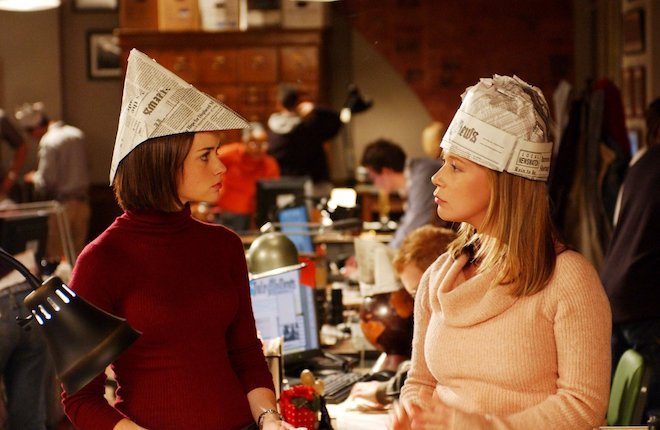Is A Journalism Degree Even Worth It Anymore?
Tell it to us straight.

Growing up, many of us have aspired to become successful journalists like Sandra Sully or Leigh Sales. And while a common route to a career in journalism is often through a university degree, other journalists have also succeeded by taking other pathways.
So, is a journalism degree really that necessary to become a journalist? Is it worth the time, money and effort?
Pros
A journalism degree will teach skills that are easily transferable and useful to other fields, such as communications or marketing. As well as learning how to write, you’ll develop skills in areas like video production, research and media law.
According to Alana Schetzer, a former reporter who currently lectures in journalism, it also helps foster an environment and culture where students are actually encouraged to read and to write. Take it from me: studying journalism really does make you a better writer.
Furthermore, you’re taught by experts. Journalism lecturers and tutors all tend to be former journalists themselves and have years of industry experience. They know the ins and outs of the media and journalism world. (Albeit one that existed a few years ago.)
You’ll also meet many like-minded people and get to know other journalists, which is beneficial for networking reasons. Your own teachers can help you network with industry contacts that provide internships and opportunities to get published.
Another advantage of a journalism degree is that it potentially gives students opportunities they probably wouldn’t be able to get anywhere else. A 2012 article from The Australian said, “The best things that degrees can offer are the mentorships, workshops, guest lectures and the like that are collectively called work-integrated learning.”
Elias Jahshan, who currently works as an editor, believes that his journalism degree gave him an advantage finding work over those who usually take the long route to become a journalist.
“I learned so much in terms of valuable skills and general information about Australian media,” he said.
Cons

Image: Gilmore Girls/Warner Bros
Journalism is constantly evolving, meaning there will be things your degree simply won’t teach you — like social media or how to pitch the perfect piece.
Depending on your university, some journalism degrees can also be very limited in what they teach and don’t offer much of a variety of subjects for students to choose from.
It can also be incredibly hard to break out into the media industry. According to the Department of Jobs and Small Business, there were 24,600 employed journalists and writers in 2017, but this is expected to fall to 23,700 by 2022.
Aside from also being quite competitive, a lot of entry-level jobs advertised tend to ask for at least 1-2 years experience alongside a degree. This means you’re tasked with taking on quite a few, if not many, unpaid internships.
Employers also largely value experience in graduates, which means that although you would be gaining valuable experience from internships, you also may end up learning skills you have already learned at uni.
On The Job
An article in The Conversation published last year suggests that jobs in journalism exist, just not traditional ones. Australian universities need to adapt their courses to reflect that.
According to Alana Schetzer, a degree allows students the “chance to think critically about themselves and their work”. A classroom environment also allows them to make mistakes and try again, she says.
“If you want to be a journalist, then you have to enter the newsroom already knowing what to do,” she says. “Journalism degrees are the new cadetships.”
Some of the tools that degrees provide students when they enter a newsroom, according to Alana, are knowing how to write a story, act ethically, understand the law, and how to interview people.
Elias Jahshan was lucky to land a cadetship a year after graduating. However, he had also previously worked as a casual editorial assistant at the Sunday Telegraph , helping him get his foot in the door and utilise his skills for his cadetship. On the job, he learned how to meet multiple deadlines in a short time-frame as well as experience the everyday newsroom environment.
The Verdict?

Image: The Newsroom/HBO
Even though a journalism degree is not exactly necessary to be a journalist or writer, it can be quite beneficial for future journalists.
The skills learned in a journalism degree can take you far, depending what you want out of a career. If you want to work in a communications or media-related field that isn’t journalism, then a degree is quite useful. Also, having an idea of how to get in touch with a source and a basic understanding of media law is crucial to being a good journalist. If you just want to write, then a journalism degree might not be the answer.
The key is to research thoroughly and explore your options. Just don’t discount it all together.
Kowther is a Communications student who is in her final semester of study at Western Sydney University. In her spare time, she loves to rant about global politics, read books, and indulge in TV shows.
(Lead image: Harry Potter/Warner Bros)